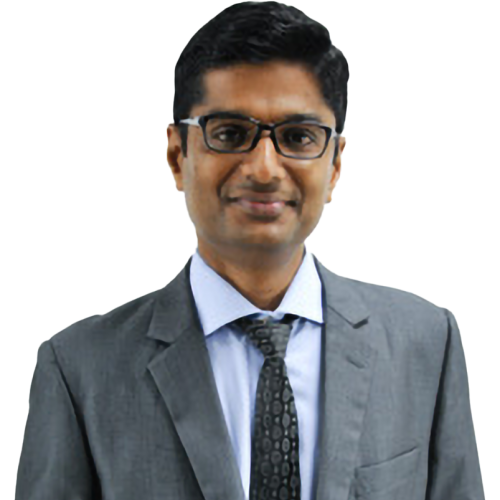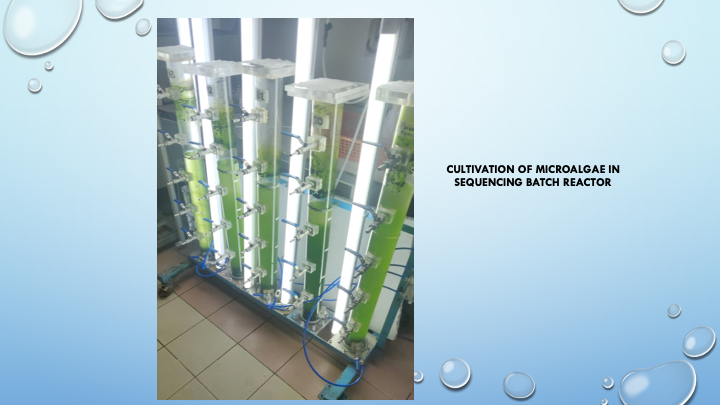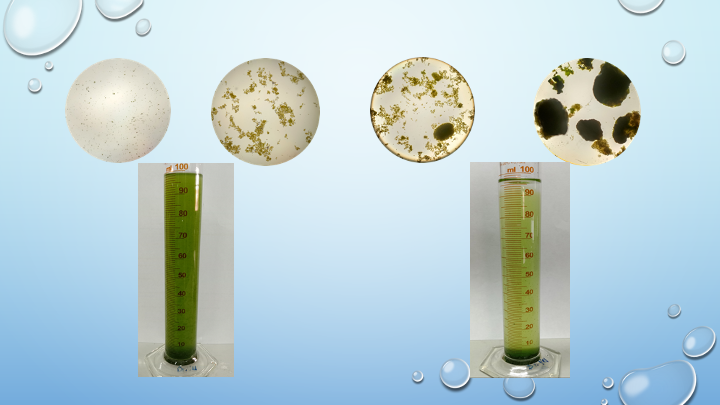Self-flocculation of Microalgae

Assoc. Prof. Dr. Vel Murugan Vadivelu
Despite the wide use of microalgae in various industries, the harvesting of microalgae has been identified as one of the major issues for its utilization. Harvesting is energy intensive due to the small cell size (3–30 μm) of the microalgae, and the negative charges around the microalgae cells tend to maintain the cells in a suspension. Therefore, an economically viable harvesting technique is required to optimize biomass recovery from the culture medium. The current and previous research conducted to improve the efficiency of microalgae separation from growth medium mostly focuses on the separation process. There are almost no studies that focus on the improvement of the characteristics of microalgae to produce microalgae with good settling ability. Thus, this research is on transforming the morphological structure of microalgae into granules. Granules are compact and dense aggregates with a spherical shape and good settling ability.
Problem Statement
- Current technologies primarily focused on optimizing microalgae separation from growth medium at the end of the cultivation process.
- High harvesting cost.
- Microalgae quality deterioration caused by the addition of chemical additives to ease the separation.
Novelty and Inventiveness
- Cultivating self-flocculating microalgae with denser morphology.
- Without the addition of chemical.
Applicability and Benefits
- In the cultivation of microalgae.
- Easy separation of microalgae from the cultivation medium.
Research Achievement
Grant: Fundamental Research Grant Scheme (FRGS), funded by the Malaysian Government “Understanding the role of extracellular polymeric substances (EPS) on the formation of granular microalgae.”
Commercialization Potential And Industrial Partner
This technology potential can be used in microalgae cultivation industries.
Intellectual Property Status
Copyright in progress.
Status of Invention
Technology Readiness Level 4.
Impact of Innovation
- University: This technology could increase the income of the university which could be used to produce more qualified researchers.
- Industry: This technology will promote easy harvesting of microalgae and will reduce the cost of harvesting processes. Thus, more microalgae would be produced and used in biofuel industries.
- Government: This would help the government to reduce the dependency on non-renewable petroleum-based fuel and to achieve net zero carbon emissions.
- Public/Environment: This is a greener approach to producing biofuel. Reducing the consumption of petroleum-based fuel could reduce greenhouse gas emissions. This could improve air quality and slow climate change.


